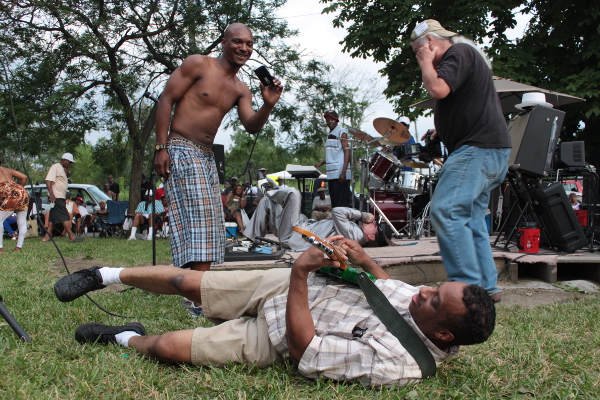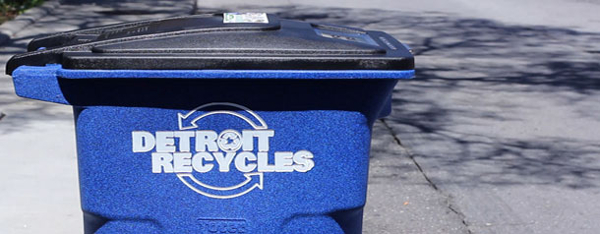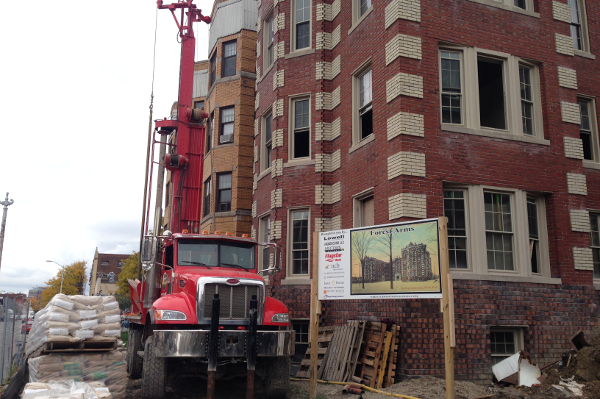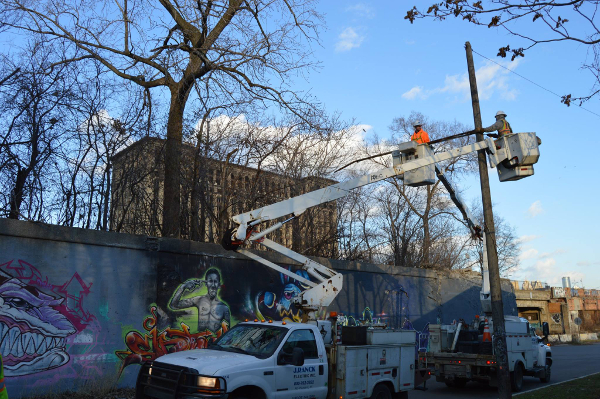Five things to look forward to in 2015
Last year was a big one for the city of Detroit. Looking forward to 2015, here are five things we're excited about.

Last year was a momentous one in Detroit’s long history. As the city celebrated the 313th anniversary of its founding, a handful of major development projects were started or completed, including the first phase of construction of the M-1 Rail streetcar line and the grand re-opening of the David Whitney Building. A slew of new downtown and Midtown restaurants opened to much fanfare, as did several new retail establishments in neighborhoods from the Avenue of Fashion to West Village, while a handful of pop-ups became permanent brick-and-mortar shops.
Oh, and in case you didn’t hear, the city emerged from the largest municipal bankruptcy ever to occur in the United States.
While there is still significant work to be done post-bankruptcy to ensure Detroit’s return to solvency, there is much to be excited about in the near future. Here are a five things we’re looking forward to in 2015:
1) City-wide recycling

Until recently, Detroit was the largest city in the United States that lacked a city-wide recycling program. That changed at the end of last year when a pilot recycling program in select neighborhoods was expanded to the entire city. Residents can opt-in to the program by purchasing a city-sanctioned 64-gallon recycling cart for $25. Learn how you can get your cart by visiting the city’s recycling webpage, where you can also find out what materials are accepted at curbside.
Of course, Detroiters can still recycle a large variety of material – from consumer electronics to cardboard – at the Recycle Here! facility located at 1331 Holden Street on the edge of New Center.
2) The proliferation of the city’s cycling infrastructure
In 2014, miles of bike lanes were added to the city’s network of cycling infrastructure, including long stretches along Lafayette and Kercheval on the city’s near east side, along Trumbull between Corktown and Woodbridge, and along Second Avenue between Cass Park and Wayne State University.
2015 promises a whole new slew of cycling and non-motorized transportation infrastructure developments throughout the city, including the expansion of the Dequindre Cut and the implementation of the first protected bike lanes in the state of Michigan along a five-block stretch of East Jefferson Avenue. Read more about them here.
3) The fate of John’s Carpet House
Every summer Sunday between May and September, a trip to an urban prairie at St. Aubin and Frederick streets on Detroit’s near east side feels like a trip to the Mississippi Delta. For years, the vacant lots on this corner have been home to John’s Carpet House, the best free weekly outdoor blues jam in the city – hell, the world!
Each week, some of the city’s finest musicians get together on a ramshackle stage and play through amplifiers powered by a gas generator. A bucket is passed around to audience members who contribute ‘duckets’ that pay the cost of mowing the lots, powering the generator, and renting porta-potties. Whatever is left over goes to the band.
But the 15-year-old summer tradition appears to be at risk in 2015. Last July, Deadline Detroit’s Danny Fenster reported that city officials shut down John’s Carpet House due to a lack of permits. According to a statement from event organizer Pete Barrow, he is “trying to work out something with the mayor and the city” and “hope[s] to see everyone next May when [John’s Carpet House] will reopen.”
The fate of John’s Carpet House will reveal much about how the city intends regulate the creative and innovative – and sometimes less-than-legal – ways people are using vacant land in the city going forward. Will the city work with citizens to help them legitimize their activities, or will it throw the book at them?
We hope that the great cultural asset that is John’s Carpet House survives.
4) The completion of major historic rehabs

Several notable historic structures will re-open in 2015, some of which have been vacant for years.
The Grand Army of the Republic Building, a castle-like structure located on the northwest edge of the central business district, was built in 1897 as a clubhouse for Civil War veterans of the Union Army. It has been undergoing renovations since 2011, when video production firm Mindfield acquired the building. Later this month, two restaurants, Republic and Parks & Rec Diner, will open in the building, followed by the offices of Mindfield and a memorial to veterans of the Civil War.
Also slated to re-open in 2015 are the El Moore and Forest Arms apartment buildings in Midtown. El Moore is being rehabbed to strict environmental standards by the people who developed and operate the Green Garage just up the street. The 70-unit Forest Arms suffered a tragic fire in 2008, but efforts to rehab the building have accelerated in recent months, including the digging of 27 geothermal wells that will help heat and cool the building in the future.
5) Let there be streetlights!

On many streets in neighborhoods throughout Detroit, eerie darkness – and in somewhat rarer instances the soft yellow glow of sodium and mercury vapor bulbs – have been suplanted by the bright white light of LED luminaires thanks to the work of the Public Lighting Authority of Detroit (PLAD), an agency tasked with modernizing the city’s antiquated street light system.
The PLAD is a state-created authority that is completely independent of the city of Detroit, funded with $12.5 million per year from the city’s utility tax. To date, the PLAD has replaced over 30,000 lights, with a goal of replacing 65,000 by 2016. The authority’s goal in 2015 is to complete the replacement of lights along all neighborhood and collector streets. It will focus on thoroughfares in 2016. Take a drive at night in the coming weeks and the efforts of the PLAD will be clearly visible.
Here’s to a brighter 2015!
—
Matthew Lewis is Model D‘s managing editor. Follow him on Twitter @matthewjlew.




